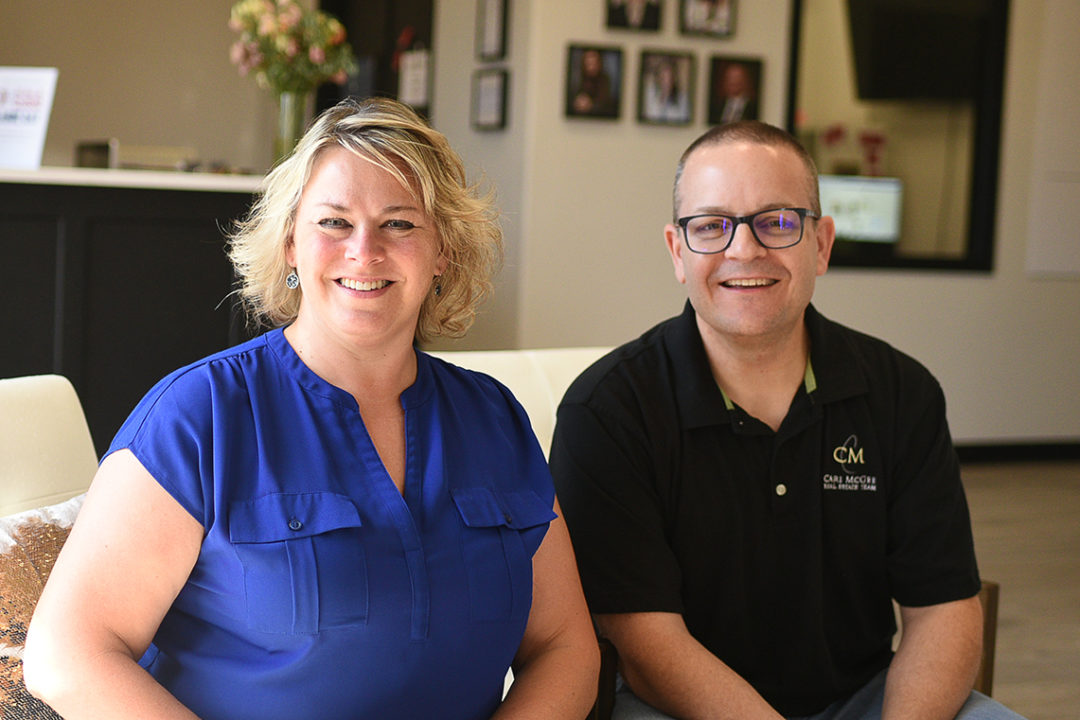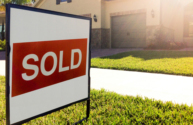
Home » Tri-City study reveals discrepancy with Zillow estimates
Tri-City study reveals discrepancy with Zillow estimates

September 12, 2019
Data on 532 local homes shows online real estate company’s numbers run too high
Do you have money signs whirling around your head after seeing your home’s latest value on Zillow? Think again.
A new study by Cari and Matt McGee of Keller Williams Realty Tri-Cities reveals discrepancies in Zillow’s Zestimates and properties’ actual values.
According to Zillow, an online real estate database company, the Zestimate home valuation model is Zillow’s estimate of a home’s market value. The Zestimate incorporates public and user-submitted data, taking into account home facts, location and market conditions.
“We, as real estate agents, knowing the market as well as we do, we come up against clients who tell us, ‘Well, Zillow says this,’ ” Cari said. “Even with purchases, I hear, ‘I’d like to offer ‘X’ because Zillow says the house is worth ‘Y.’ ”
They had seen it anecdotally, over and over again, Cari said, and they wanted to fact check Zillow’s data.
Between Jan. 16, 2019, and June 14, 2019, they recorded the sales prices of 532 homes across the Tri-Cities—in Richland, Kennewick, Pasco and West Richland—and compared them to the Zestimates published for those homes the day of each home’s closing.
What they discovered surprised them.
“There was a tremendous amount of inaccuracy,” Cari said.
They found that Tri-Cities’ Zestimates are worse than Zestimates across the state and nation—on average homes are nearly 6 percent too high in all four cities.
“For a home that is worth $300,000, that’s over $15,000 off, which can make a huge difference,” Cari said.
If the home is in Kennewick or Richland, it’s value is probably about 8 percent too high. In West Richland, there is almost a 9 percent discrepancy. In Pasco, the numbers are more accurate; they are only 2 percent off.
“They will tell you they use an algorithm, but I am not quite sure how they get that number,” Cari said. “One thing to understand is that Zillow will list what a house sold in 2013, but they need to be using numbers coming from the county assessor and (Multiple Listing Service).”
The discrepancy is considerably higher than the rest of the state, which has a median error rate of 2.5 percent. In late January, Zillow said its median error rate nationwide was 4.5 percent. That means half of all Zestimates are within 4.5 percent of a home’s true sales price.
One important thing to take into consideration is that the median error rate shows how wrong Zestimates are, but it doesn’t indicate whether the Zestimates are higher or lower than the real sales prices of homes, Cari said. But based on the McGees’ research, a significant majority of Zestimates were higher than the homes’ sale prices in all four cities.
“We didn’t think it would be as inaccurate as it was,” McGee said.
“We have access to accurate data. Zillow hasn’t been in your house. They don’t know you upgraded your kitchen or other improvements you’ve done,” Cari said. “You have to get a real estate agent to come to your home. They will have information on comparable sales and then come up with the value of the house.”
Cari said she has used the study in social media awareness campaigns, local media outreach and to educate clients during the home buying and selling process.
The extensive study also tried to look at where the biggest outliers are.
For example, they found that Richland has the highest percentage of Zestimates —68 percent—that were more than 5 percent off. Richland also has the highest percentage of Zestimates that are 10 percent and 20 percent off.
In Kennewick, Richland and West Richland, about 90 percent of Zestimates were off actual sales prices by more than $5,000. Across the Tri-Cities, about 16 percent of Zestimates were at least $50,000 off.
“We also discovered the most expensive homes have the most inaccurate Zestimate,” Cari said. “Homes in Pasco hit the sweet spot where the value of the home on Zillow most align with its sold price.”
Zillow was founded in 2006, but Cari said that it wasn’t until about five years ago that she started hearing about it consistently from buyers and sellers.
Although it hasn’t changed the way she does business, it has added an additional layer of objections.
“Before it used to be that ‘My uncle who lives across the street and he says my home is worth this.’ It’s easy to refute that argument. It’s harder when it’s a website that people feel they can trust. They think it’s accurate because it went right down to the dollar,” she said.
Dave Shinabarger, president of the Tri-City Association of Realtors and real estate agent with Smart Realty, said Zillow can be a good, educational resource, but he’s noticed issues too.
He noted that sometimes when comparing the homes on Zillow to the MLS, sometimes Zillow doesn’t have the most updated floor plan or recent data.
“I was just looking at a home that was listed as three bedrooms, zero baths. I need to call that realtor and suggest they get a hold of Zillow to fix that,” he said.
He says that the value of the home is nuanced—accounting for even which side of the road it’s on. He said taking comparable sales in the neighborhood can be misleading if taken at face value.
He said he would love to see a consumer-facing website on behalf of all agents in the Tri-Cities that has the most accurate data—he said that’s his personal opinion, and not the opinion of the association.
To read the McGees’ study, go to carimcgee.com/zillow-vs-reality.
Real Estate & Construction Local News
KEYWORDS september 2019





